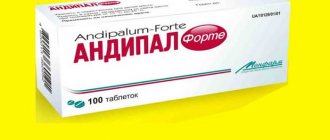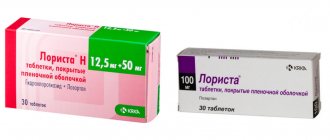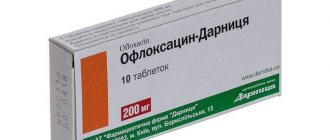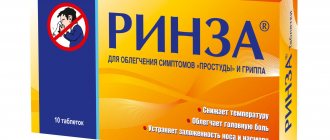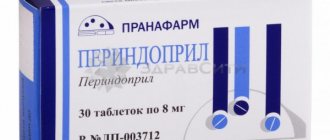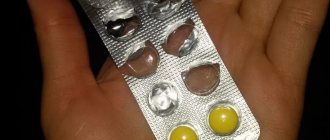In hypertension, the vascular system is under increased pressure. With each contraction of the heart, blood is pumped into the vessels. The higher your blood pressure, the harder it is for the heart to pump blood into the system. As a result, the risk of damage to the heart, brain, kidneys, etc. increases. Timely treatment of hypertension protects against stroke and heart attack. Untreated high blood pressure causes heart enlargement and heart failure. Aneurysms, blockages, and blood clots can form in the circulatory system. The pressure subsequently leads to cerebral hemorrhage and stroke. With prolonged hypertension, kidney failure, blindness, partial memory loss, and mental weakness often develop.
The negative consequences of high blood pressure are usually aggravated by associated risk factors: smoking, eating fatty foods, alcohol, physical inactivity, stress and diabetes.
Every person is obliged to know and control their blood pressure. If there are any deviations, you should consult a doctor. At the initial stage of the disease, to normalize blood pressure, it is often enough to change your lifestyle and give up bad habits. Advanced forms of hypertension need to be treated with medications. One of these drugs from the group of ACE inhibitors is Capoten. The instructions for use of "Capoten" (at what pressure the drug is indicated) states that severe hypertension is a systolic pressure greater than 160 mm. Hg and diastolic greater than 110 mm. Hg Art.
pharmachologic effect
Capoten is an ACE inhibitor. It suppresses the formation of angiotensin II and eliminates its vasoconstrictive effect on arterial and venous vessels.
The drug reduces peripheral vascular resistance, afterload, lowers blood pressure, and also reduces preload, reduces pressure in the right atrium and pulmonary circulation.
Capoten reduces the production of aldosterone in the adrenal glands.
Peak effectiveness is observed 60-90 minutes after oral administration. The degree of blood pressure reduction is the same in the patient's standing and lying position.
When taken with food, absorption of the drug slows down by 30-40%. The half-life is 2-3 hours. The drug is excreted in the urine up to 50% - unchanged, the rest - in the form of metabolites.
When Kapoten doesn't help
Some hypertensive patients who have self-prescribed treatment with this drug note its ineffectiveness. This is due to the fact that the medicine is not universal and is unable to cope with surges in blood pressure in some cases. The question of why Capoten does not reduce blood pressure may arise if hypertension is caused by:
- A stressful situation when adrenaline begins to be produced, which does not constrict blood vessels in the heart and brain. The blood pressure medicine Capoten is designed to prevent the production of oligopeptides that work specifically in these organs.
- Increased heart rate. In this case, Capoten does not work, since it does not affect the heart muscle.
- Diseases of internal organs - gastrointestinal tract, kidneys, adrenal glands.
Important! Considering that Capoten reduces blood pressure only in certain diseases, you should consult your doctor before starting to take the drug.
Sometimes the effectiveness of Capoten decreases with long-term use. The reason is the effect of addiction to the active substance of the drug. The body begins to require increasingly larger doses of Captopril, and over time it stops responding to them. This situation is dangerous because if a hypertensive crisis occurs, blood pressure cannot be brought down even with stronger drugs.
In this case, the doctor should draw up a treatment regimen in which the dose of Capoten is carefully reduced. It is impossible to abruptly cancel the drug, as this can lead to irreparable consequences caused by “withdrawal syndrome”. Most often, Capoten begins to be combined with other antihypertensive drugs, gradually eliminating the drug that is no longer able to effectively reduce blood pressure.
Advice! You can avoid addiction by alternating the use of Capoten with other medications to lower blood pressure, for example, from the group of diuretics or blockers. The choice of medications is possible only under the strict supervision of a doctor; doing this on your own is dangerous to your health.
Instructions for use
Capoten is taken orally. The dosage regimen is determined by the indications.
For arterial hypertension, the doctor selects the dose of Capoten individually. The drug must be taken in the minimum effective dose.
The initial dose for mild to moderate hypertension is 12.5 mg 2 times a day, maintenance dose is 25 mg 2 times a day. If necessary, the dose can be increased every 2-4 weeks. The usual effective therapeutic dose is 50 mg 2 times a day.
The initial dose for severe hypertension is 12.5 mg 2 times a day. Gradually, the daily dose is increased to a maximum of 150 mg (3 times a day, 50 mg). When using Capoten simultaneously with other antihypertensive drugs, it is recommended to select the dose individually.
Treatment of heart failure should begin under the supervision of a doctor. As a rule, an initial dose of 6.25 mg 3 times a day maximizes the effect of transient hypotension. The maintenance dose is usually 25 mg 2-3 times a day. If necessary, the dose is increased every 2 weeks (maximum 150 mg).
After a myocardial infarction, the use of Capoten can be started after 3 days. The drug is prescribed at an initial dose of 6.25 mg 3 times a day with a gradual (over several weeks) increase in a single dose to 25 mg. If necessary, the dose can be gradually increased to a maximum of 50 mg 3 times a day.
If symptomatic hypotension develops, a dose reduction may be required.
According to indications, Capoten can be used simultaneously with other drugs, for example, thrombolytics, beta-blockers and acetylsalicylic acid.
The recommended daily dose for diabetic nephropathy is 75-100 mg 2-3 times a day. For patients with insulin-dependent diabetes with microalbuminuria (with albumin excretion of 30-300 mg per day), tablets are prescribed 50 mg 2 times a day. If the total protein clearance is more than 500 mg per day, the drug should be taken 25 mg 3 times a day.
By
Kapoten - application
In order not to encounter any of the side effects described above, you need to know how to take Capoten correctly for high blood pressure and other problems. For each patient, the dosage should be calculated individually by a specialist who will assess the actual state of health and the main characteristics of the body. The only thing that can be said for sure is that you can take Capoten both before and after meals - this does not affect the effectiveness of its action in any way, only on the speed.
At what blood pressure can Capoten be taken?
Patients unfamiliar with this drug are very interested in the question at what pressure to take Capoten. Typically, the drug is prescribed when symptoms of high blood pressure begin to appear and the blood pressure monitor shows values of 140/90 or higher. Without obvious signs of blood pressure, you should not take pills - unless the patient is sure that an attack will happen in the near future - because the medicine lowers blood pressure, rather than stabilizes it. That is, if you drink it at normal levels, your health will only worsen.
Drivers and people in responsible positions should not take pills unless absolutely necessary. In such cases, to combat blood pressure, it is better to use the original and slower absorbing Captopril or something from alternative traditional medicine:
- green tea;
- kefir;
- viburnum.
Kapoten - dosage
A specialist should tell you how to take Capoten during a hypertensive crisis and other problems, based on information about the health status and characteristics of the patient’s body.
Standard dosages:
- Elderly people are prescribed Capoten for high blood pressure, ¼ tablet (6 mg) twice a day.
- In case of sudden changes in blood pressure, you need to drink a 25-milligram tablet twice a day.
- For an adult healthy body, half a pill (12.5 mg) twice a day (preferably before meals) is enough.
The maximum dose of Capoten that can be taken per day is 50 mg. After this, the pressure may drop sharply, and problems in the functioning of the cardiovascular system will appear. Some patients with an overdose are in a state of shock, which will be difficult to cope with without an ambulance. To support the body during treatment with Capoten, it is recommended to reduce the amount of salt in the menu and it is better to give up stimulants for a while.
How to take Capoten correctly?
Another very popular question among “fans” of tablets is whether Capoten should be placed under the tongue, swallowed or dissolved. There is no clear answer. Most doctors are in favor of simply washing down the tablets with water, because they have a special effect on the mucous membranes and internal organs, but if you need to provide emergency assistance, it is better to put the medicine under the tongue. This way, the active substance will penetrate the blood faster, and the pressure will drop by several units within a few minutes.
How long does Capoten last after taking it?
This drug works quickly. How quickly does Capoten work at high blood pressure if you put it under the tongue? Positive changes, as a rule, become noticeable after about five minutes, but you should not rely entirely on this time, because much depends on the patient’s metabolic rate and other characteristics of his body. The operational effect allows you to prevent many problems, including:
- complications of various types;
- strokes;
- heart attacks.
How long can you take Capoten?
This must be determined by a doctor, because the duration of therapy varies from case to case. During the recovery period after a heart attack, for example, Capoten for blood pressure is allowed to be taken every day. A course of several days is also appropriate for congestive hypertensive crises. In this case, medicine is needed to relieve the load on the heart. You should not drink Capoten constantly without a particular reason - the product is simply not designed for daily use and can cause harm.
Contraindications
- intolerance to one of the components of the drug;
- hyperkalemia;
- children under 18 years of age;
- breastfeeding and pregnancy;
- dysfunction of the liver and kidneys;
- Quincke's edema;
- bilateral renal artery stenosis;
- stenosis of the artery of a single kidney with possible progressive azotemia;
- history of hypersensitivity;
- the patient's condition after kidney transplantation;
- stenosis of the aortic mouth and similar diseases that impede the outflow of blood.
Kapoten - what kind of medicine is this?
This drug belongs to a large group of drugs that suppress ACE (angiotensin-converting enzyme). The medicine Kapoten effectively lowers blood pressure, which is why it is often prescribed to people suffering from heart problems. The medication looks like whitish or cream-colored tablets of a non-standard square shape with rounded corners. Before taking Capoten, you also need to understand that these pills have a characteristic, not the most pleasant odor.
Kapoten - composition
Today the drug is available in only one available dosage form - in the form of tablets, which are designed for oral administration. Pills are sold in packs of 28, 40 and 56 pieces. The main active ingredient in Capoten is captopril. There are tablets containing 25 and 50 mg. In addition, Kapoten contains the following components:
- lactose;
- corn starch;
- stearic acid;
- microcrystalline cellulose.
What is Kapoten needed for?
This is an important issue that should be addressed before taking Capoten. The drug is needed to relieve excessive stress on the heart and lower blood pressure. The effect is achieved due to the ability to block the action of ACE. Thanks to this, angiotensin I is not converted into angiotensin II, a substance that has a strong vasoconstrictor effect, which causes blood pressure to rise.
When, after taking the Capoten tablet, your health returns to normal, this means that the blood vessels have dilated to a healthy state, blood circulates as expected, blood pressure has returned to normal, and the load on the heart is reduced. If you take the pills continuously for a month or two, your blood pressure will gradually stabilize and be in an acceptable range.
Kapoten - indications for use
You should definitely read them before taking Capoten. The tablets are recommended for many different reasons. Here are the specific indications for Kapoten:
- arterial hypertension (the drug is successfully used for monotherapy and is well combined with other blood pressure medications);
- diabetic nephropathy in patients with insulin-dependent diabetes;
- impaired functioning of the left ventricle (a condition that develops against the background of a heart attack);
- chronic heart failure;
- mild hypertension (exclusively as an additional therapy);
- severe hypertension (but only when traditional treatment has not produced any results at all);
- congestive heart failure.
Capoten - contraindications
There is also a category of patients who will not have the opportunity to learn how to take Capoten tablets, for the reason that they are simply contraindicated for them. For example, experts strongly do not recommend taking pills for collagenosis. In this condition, they increase the risk of developing problems such as neutropenia or agranulocytosis.
It is recommended to finally find out whether Capoten is possible specifically in your case or not from your attending physician. The main contraindications to the use of this drug include the following:
- Quincke's edema;
- hyperkalemia;
- previous kidney transplantation;
- severe impairment of the kidneys or liver;
- bilateral renal artery stenosis.
Among other things, Kapoten is prohibited during pregnancy. The drug is very undesirable for nursing mothers. It will not bring benefit to those patients who may be allergic to any of the components of the composition. To minimize risks, during therapy with Capoten, doctors advise taking diuretics that retain potassium in the body, or drugs containing potassium.
Capoten - side effects
They occur if the drug is completely unsuitable for the patient or in cases where patients do not adhere to the recommendations and do not follow the instructions. Capoten tablets may have the following side effects:
- tachycardia;
- proteinuria;
- acidosis;
- orthostatic hypertension;
- peripheral edema;
- hyperkalemia;
- hyponatremia (usually found in patients who adhere to a salt-free diet and at the same time take diuretics);
- angioedema;
- diarrhea;
- hepatitis;
- headache;
- dizziness;
- neutropenia (in extremely rare cases);
- papular rash;
- aphthous stomatitis;
- gum hyperplasia;
- erythema;
- photosensitivity;
- paresthesia;
- drowsiness;
- vision problems;
- temperature increase;
- increased dry mouth;
- ataxia;
- anemia;
- tachycardia;
- increased creatinine in the blood;
- disturbances in the sense of taste;
- cholestatic jaundice;
- bronchospasms;
- abdominal pain;
- stomach irritation.
Side effects
- tachycardia;
- dry mouth;
- dry cough (usually disappears after discontinuation of the drug);
- stomatitis;
- drowsiness;
- peripheral edema;
- paresthesia;
- pulmonary edema;
- orthostatic hypotension;
- neutropenia, agranulocytosis, thrombocytopenia, anemia;
- visual impairment;
- taste disturbance;
- diarrhea;
- headache, dizziness;
- hyperkalemia, hyponatremia;
- bronchospasm;
- stomach ache;
- angioedema of the limbs, face, lips, mucous membranes, tongue, pharynx or larynx.
What side effects are there from taking capoten?
| Heart and blood vessels | A short-term drop in pressure, rapid heartbeat, which is restored when the patient assumes a horizontal position. This is a normal physiological reaction that does not require treatment. |
| Lungs and airways | Dry cough, coughing is the most common “symptom” of taking Captopril |
| Kidneys | The appearance of signs of renal failure - protein, urea nitrogen and creatinine in the urine. |
| Allergic reactions | Urticaria, flushing of the face due to vasodilation, redness. Rarely, vascular edema of the face and extremities is possible. |
| Digestion | Changes in taste, dry mouth, inflammation of the mucous membrane of the gums and cheeks. There are rare cases of inflammation of the pancreas and cholestatic jaundice. |
| central nervous system | Headache, drowsiness and insomnia, paresthesia (feeling of goosebumps running over the skin, tingling in different parts of the body). |
| Electrolyte disturbances | Hyperkalemia (with concomitant renal failure), hyponatremia (if the patient adheres to a salt-free diet). |
In case of overdose, a pronounced decrease in pressure, shock, electrolyte imbalance and acute renal failure occur.
special instructions
In patients with arterial hypertension, when using the drug, severe arterial hypotension is observed only in isolated cases; the likelihood of developing this condition increases with excessive loss of salts and fluids (for example, after intensive diuretic therapy), in patients on dialysis, or in patients with heart failure.
The possibility of a sharp decrease in blood pressure can be minimized if diuretics are discontinued 4-7 days in advance or the sodium chloride intake is increased in advance (7 days in advance). This can also be achieved by prescribing small doses of Capoten (6.25-12.5 mg per day) at the beginning of treatment.
What are Capoten tablets prescribed for?
"Capoten" is prescribed to reduce blood pressure, the drug reduces the load on the heart. Therefore, it is often used in the treatment of hypertension and severe heart failure. Long-term use of "Capoten" increases the patient's ability to undergo increased physical and psychological stress. The drug does not provoke swelling. Therefore, its use does not need to be combined with diuretics.
Indications for use:
- hypertension of various forms;
- severe form of hypertension, in which the pressure becomes higher than 200/110, this condition leads to damage to blood vessels and the optic nerve;
- renovascular hypertension (damage to kidney vessels);
- relief of hypertensive crisis;
- high blood pressure due to bronchial asthma;
- advanced chronic heart failure;
- impaired kidney function due to diabetes.
"Capoten" is in many ways superior to other drugs. It is safe for older people, does not reduce male potency, and has an antioxidant effect. The use of "Capoten" reduces the likelihood of cancer and slows down nephropathy in diabetes mellitus. Statistics show that taking the drug reduces mortality in diseases of the cardiovascular system.
Drug interactions
Capoten may potentiate the hypotensive effect of diuretics. An excessive decrease in blood pressure is possible with strict restriction of salt intake, hemodialysis and usually occurs within the first hour after taking the first prescribed dose of the drug.
During therapy, vasodilators should be used in the lowest effective doses due to the risk of excessive reduction in blood pressure. When combining Capoten and drugs that affect the sympathetic nervous system, caution should be exercised.
How to take Capoten with high blood pressure?
For the pharmacological agent Capoten, the instructions contain detailed recommendations for use at high blood pressure.
- The main requirement for organizing treatment is to take the tablets 60 minutes before meals.
- The medicine recommended by the doctor is taken with water.
- The dose per dose is prescribed by the doctor in accordance with the individual indications of the patient.
Only a doctor who constantly monitors the patient and controls the composition of his blood at least once every 3 months has the right to decide how to use Capoten. One of the traditional treatment regimens is to gradually increase the dose if the doctor is convinced that the drug is effective for treating a particular patient. The dosage can be increased no earlier than 15–30 days after the previous dose of the drug was prescribed.
Whether Capoten is allowed during pregnancy can be found in this article.
Dosage and method of administration
According to the instructions, the minimum dose of the drug is 25 mg, but in the event of a sharp and unexpected increase in blood pressure in young healthy people, they may be prescribed half of this dose - ½ tablet with a dose of 25 mg. For high blood pressure, the drug is taken twice a day, an hour before meals, for maximum absorption.
For older people, the dose is further reduced by half - about 6 mg.
Typically, therapists prescribe the first use of the drug according to the scheme described below. This is how to take Capoten correctly: if the pressure jumps to 150 to 95 mm Hg. Art., then to reduce indicators in the early stages it is recommended to take half a tablet. After just half an hour, the tonometer should show a drop of 10–15%, and after another half an hour – 20–30%.
If everything goes according to this plan, then we can talk about the optimal dosage and a sharp reaction of the body, but if negative symptoms persist, it is worth increasing the dose by a quarter (from 25 mg), since it is obvious that in a smaller amount Capoten does not reduce blood pressure.
An overdose of Capoten is manifested by a sharp decrease in blood pressure, interruptions in heart function and the patient’s state of shock, so it is necessary to call an ambulance. The very first thing you can do before medical workers arrive is to rinse your stomach.
For tinnitus, numbness of the extremities, disturbances in speech, coordination, and facial expressions, it is necessary to take nitroglycerin under the tongue.
The action of Kapoten is stimulating, so in informal circles it can be called harsh chemistry, and even hard drugs with lethal consequences. Because of this, any doctor will strive to prescribe a minimum dose, as well as to completely abandon the drug after the acute stage of the disease has ended.
The strength of the drug is indicated by the fact that during treatment it is necessary to regularly take blood tests and monitor the level of leukocytes.
It is very important not only to observe dosages, but also to take into account the interaction of the drug with other medications, not to take drugs of the same chemical and pharmacological group in parallel, not to burden the kidneys, and to adhere to a salt-free diet. For example, choose Corinfar or Capoten, but do not take these medications at the same time, otherwise a relapse will occur.
Depending on the level of pressure, the dosage of Capoten may be as follows:
- from 130 to 85 to 140 to 90 – 6.5–12.5 mg;
- from 140 to 90 to 160 to 100 – 12.5–25 mg;
- from 160 per 100 to 180 per 110 – 25–50 mg;
- from 180 to 110 and above – 12.5–50 mg (in portions every hour until optimal reduction).
If the patient is in serious condition, then it is necessary to take Capoten with high blood pressure hourly, in small portions (for very high blood pressure, a single dose can be 12.5 mg and must be repeated every hour).
It is safest and most effective to take small doses of capsules, but only a doctor can prescribe which ones. The specialist always determines them on an individual basis - regarding weight, age, and the presence of chronic diseases.
As already mentioned in the summary, an overdose is extremely dangerous and requires an immediate response. It is expressed in a sharp decrease in pressure and the patient’s state of shock.
The consequences of an overdose are eliminated with the help of intravenous infusion of physiological or blood replacement solution. In some cases, hemodialysis is used.
Composition of the drug
This popular medicine for high blood pressure contains only one active ingredient - captopril. This chemically synthesized substance is an angiotensin-converting enzyme inhibitor. Each tablet contains 25 mg. In addition, the medication contains auxiliary ingredients that promote rapid absorption of the drug. They have no effect on the body. "Capoten" tablets are well tolerated and do not cause drowsiness or dizziness.
Use during pregnancy and lactation
Contraindicated during pregnancy and lactation. Contraindicated for children under 18 years of age.
Capoten acts as a strong chemical, the use of which is prohibited during pregnancy and lactation, since its effect on the growth and development of intrauterine life can be negative.
Experiments were conducted on experimental animals, which confirmed that the drug is extremely undesirable during pregnancy and leads to miscarriage. Thus, as soon as a woman finds out that she is pregnant, the drug must be stopped.
At the stage of pregnancy planning, even before conception, you also need to stop taking this antihypertensive medication and switch to more acceptable medications.
Indications for use
Capoten is an antihypertensive drug that is prescribed for arterial hypertension when blood pressure exceeds 140/90 mmHg. Art. Other indications for the use of the drug are the following diseases:
Capoten has a number of serious contraindications, the main of which are kidney problems. The official instructions for the drug list the main contraindications for use:
- history of Quincke's edema;
- liver and kidney dysfunction;
- narrowing of the arteries of the kidneys;
- stenosis of the aortic mouth.
Problems with the circulatory system, in which natural blood flow in large blood vessels is impeded, are contraindications to taking Capoten.
Any substances aimed at regulating blood pressure and affecting the cardiovascular system should be taken only as prescribed by the attending physician. Diagnosed hypertension is a reason for registration with a cardiologist. The presence of hypertension in a woman planning a pregnancy is a risk of gestational arterial hypertension, one of the main complications of pregnancy. Therefore, medical supervision and systemic treatment of hypertension is an extremely important task for the mother.
Contraindications to the use of the medication
We have found out why Capoten tablets are prescribed, now we will look into the contraindications to the use of this drug. The medicine is not prescribed if the patient has the following conditions:
The drug cannot be used in pediatrics and children under 18 years of age, since the necessary clinical trials have not been conducted.
The drug "Capoten" is used with caution in the following conditions:
- primary hyperaldosteronism;
- severe autoimmune connective tissue diseases;
- inhibition of bone marrow hematopoiesis (as agranulocytosis and neutropenia may develop);
- coronary heart disease or cerebral ischemia;
- following a salt-free or low-salt diet;
- in old age.
Release form and composition
Capoten tablets have a delaying effect on the course of the enzymatic reaction in the human body and begin to act instantly. It is certainly difficult for people without medical education to understand all the information about pills, but it is important to know the main thing, the drug is used for:
- reducing blood pressure;
- treatment of hypertension;
- therapy of chronic heart failure.
The medicine Capoten is produced exclusively in tablet form: square with rounded corners, convex on both sides. The tablets are white or somewhat creamy in color. On one side there is a notch in the form of a cross, on the other there is the inscription “SQUIBB452”. This is the name of an American pharmaceutical corporation. The most effective use is to place Capoten under the tongue.
The drug is presented in two dosages of 25 and 50 mg and contains the following list of components:
- The main active ingredient is captopril.
- Corn paste.
- Milk sugar.
- Dietary fiber in the form of cellulose.
- Stearic acid.
Due to the presence of specific volatile odorous substances, Capoten has a characteristic odor, but this does not in any way affect the method of application.
Capoten is available in the form of tablets in blisters of 10 pieces (4 blisters in a pack) and 14 pieces (2 or 4 blisters in a pack). 1 tablet contains: active substance: captopril - 25 or 50 mg and auxiliary components.
Analogs and price
This drug has various analogues, which are also very effective, like the original drug. This table shows Kapoten analogues, their approximate cost and release form.
| Drug name | Price |
| Accupro | 565 rubles |
| Amprilan | 346 rubles |
| Arentopres | 205 rubles |
| Bagopril | 278 rubles |
| Berlipril | 124 rubles |
| Vasolong | 463 rubles |
| Gopten | 560 rubles |
| Lizacard | 451 ruble |
| Dilaprel | 378 rubles |
| Ramicardia | 497 rubles |
| Renitek | 356 rubles |
| Hartil | 236 rubles |
| Enam | 755 rubles |
| Ednit | 467 rubles |
| Envas | 174 rubles |
For older people, it is best to give preference to capsules rather than tablets, as they are easier to swallow and lower blood pressure faster.
In this video, two drugs are compared: Capoten and Captopril. Which one is better? Which drug is more effective? Detailed comparative characteristics.
Interaction with medications
Capoten acts quickly and effectively copes with high blood pressure. But this is only possible with constant medical supervision. Moreover, the specialist must control not only the dosage of the drug, but also its compatibility with other drugs. During treatment, any additional medications should be reported to your doctor, who can reduce the dosage of Capoten or increase it for optimal effect. What medications can you take an antihypertensive drug with, and which ones can’t because of the high risk of side effects?
- The combination of Captopril with diuretics, vasodilators, ganglion blockers, alpha-blockers, hemodialysis or a salt-free diet can lead to an excessive decrease in blood pressure.
- The inclusion of anti-inflammatory non-steroidal drugs in the Capoten treatment regimen, on the contrary, reduces the hypotensive effect and worsens renal function.
- Potassium-sparing diuretics in tandem with Capoten can lead to hyperkalemia, and taking lithium drugs increases lithium in the blood serum.
- Captopril potentiates the hypoglycemic effect of medications taken by diabetics, which requires constant monitoring of blood glucose levels.
When taking certain medications simultaneously with Capoten, you should undergo regular tests to monitor the patient’s condition and reduce the dose of a particular drug in a timely manner. Self-prescription of medications during therapy, increasing permissible dosages can lead to various pathologies and even death.
What do the instructions say?
As medical practice shows, this drug is most often prescribed by doctors as part of complex therapy for the treatment of arterial hypertension. The mechanism of action is very simple. Our kidneys produce an enzyme that has a vasoconstrictor effect. Against this background, pressure increases and the load on the heart muscle increases. “Capoten” is aimed specifically at minimizing the production of such an enzyme. And a decrease in pressure is just a consequence of a complex chemical process.
List of indications:
- heart failure;
- arterial type hypertension;
- diabetic nephropathy;
- heart attacks;
- renal pathologies.
If we are talking about the treatment of any of the listed ailments, then the appointment of “Capoten” is the exclusive prerogative of the doctor. But in emergency situations, a person makes his own decisions. One tablet is enough, but there are cases when the pressure level has exceeded 200. You can take two tablets under the tongue, but you must take a break of at least half an hour.
On a note! Before taking Capoten again, you should measure your blood pressure. If it stabilizes to a normal level, taking a second tablet is not necessary.
Mechanism of action of Capoten
To understand whether Capoten can be taken during pregnancy, you need to know the mechanism of its action in the body of the mother and fetus. ACE inhibitors are aimed at reducing the degree of vasoconstriction, which is a factor that provokes an increase in blood pressure (BP).
Most often, the active substance Kapoten causes changes in the uteroplacental circulation and hemodynamics of the fetus, leading to insufficient blood supply to the tissues of the kidneys, as well as the heart, lungs and other organs and systems.
Another important component of Capoten’s mechanism of action is a decrease in the production of aldosterone in the adrenal glands, which regulates potassium-sodium metabolism in the body. Capoten leads to a decrease in the volume of circulating fluid in the circulatory system, easing the load on the heart and increasing tolerance to physical activity.
Regulation of the vasoconstriction process in combination with the regulation of water-salt metabolism in combination produces a good hypotensive effect on the maternal body.
At the same time, the effect of Capoten on the process of electrolysis during pregnancy, due to the same pharmacokinetic mechanisms, turns out to be extremely negative for the fetus and can lead to pathologies of the kidneys and urinary apparatus. Research shows an extremely negative effect of the substance on the fetus during its formation, which leads to:
- severe developmental delay and shortening of limbs;
- heart defects;
- pulmonary hypoplasia;
- underdevelopment of the kidneys;
- pathologies of the nervous system;
- neonatal anemia;
- deformations of the facial bones of the skull.
In newborns whose mothers took Capoten during pregnancy in the 3rd trimester, the following is most often observed:
- arterial hypotension (AH);
- anuria (failure of urine to enter the bladder);
- renal failure (reversible or irreversible), which is usually incompatible with life.
The combination of negative factors leads to severe consequences for the fetus. In addition to the mineralocorticoid and vasoconstrictive effect, Capoten itself is characterized by a fetotoxic effect up to 12 weeks of pregnancy.
Consequences of hypertension for the body
Kapoten: what is it for?
Capoten (captopril) is an ACE inhibitor. It was discovered back in the 1970s of the 20th century. A study of kidney function in the development of hypertension identified angiotensin-converting enzyme, which the kidneys produce to increase blood pressure.
The hypotensive effect of Capoten is explained by the suspension of the production of angiotensin II, which thereby minimizes its vasoconstrictive effect and also eliminates water retention in the body.
Capoten tablets
In addition, the drug reduces the synthesis of aldosterone, a hormone whose final result is an increase in systemic blood pressure. In addition, the effect of the drug also has a positive effect on the heart: preload weakens, systolic pressure in the right ventricle drops, and cardiac output increases.
With regular use, tolerance to physical and other stress increases and well-being improves. The main indication for use is problems with high blood pressure.
Capoten is recommended for use in the following diseases:
- arterial hypertension (both with moderate and significant increases). Prescribed as monotherapy or combined with various medications;
- congestive heart failure. In case of ineffective use of cardiac glycosides;
- heart attack;
- diabetic nephropathy;
- kidney pathology causing hypertension.
A full examination before starting to take the drug and, if necessary, careful medical monitoring during treatment will minimize the risks associated with its use.
In fact, these tablets can be included in the treatment plan by the attending physician in other cases if there is a concomitant appearance of hypertension against the background of the underlying disease.
Compatibility with other drugs
"Capoten" for blood pressure can interact with certain types of medications:
- medications containing lithium salts, as it helps retain lithium in the body;
- potassium-sparing diuretics – contributes to the development of hyperkalemia;
- "Allopurinol" - possible manifestation of symptoms of Steven-Johnson syndrome;
- immunosuppressants – leads to hematological changes;
- “Indomethacin” - in this case it may turn out that the drug does not reduce blood pressure;
- vasodilators – with these medications, “Capoten” increases its effect on the body.
Your attending physician should inform you more fully about compatibility with specific pharmaceuticals, taking into account your general medical history.
Overdose
If the permissible dose of the drug is exceeded, dangerous signs of overdose may occur:
- bradycardia,
- a sharp decrease in blood pressure,
- renal failure,
- stupor,
- water-electrolyte imbalance,
- shock.
Important: If you notice any of the above symptoms, you should seek qualified help.
Treatment for an overdose of the tablets in question consists of gastric lavage, administration of adsorbents and sodium sulfate to the victim (these procedures must be performed within 30 minutes after taking an increased dose of the drug). You will also need the introduction of a sodium chloride solution and any plasma replacement agents.
Before administering the drugs listed above, it is necessary to give the patient a comfortable position (he should lie horizontally, but with a low headboard). If vagal reactions are observed, the doctor administers atropine. In some cases, the use of an artificial pacemaker is required.
